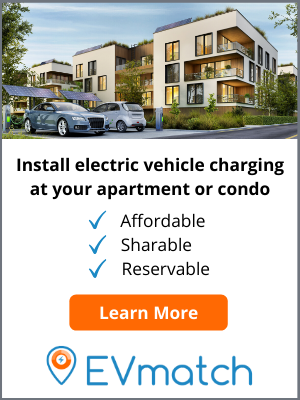Blog
Politicians Are Starting To Care About Electric Vehicles
August 16, 2019
Post Author

With all the name-calling, in-fighting, and lack of bipartisanship in Congress and at the Federal level generally, it’s difficult to cut through the noise to understand what’s actually happening with policy. Don’t get me wrong, “dysfunction” is a perfectly valid descriptor for government these days, but fortunately, there are some bright spots between the rancor and rust.
For those of you that tuned in to watch the second Democratic presidential primary debates in Detroit at the end of last month, you may only remember Marianne Williamson’s unusual, albeit passionate, remarks, or the tactics by moderate Democrats to attack Senators Bernie Sanders and Elizabeth Warren. But you may have missed Senator Sanders calling to outlaw ICE vehicles by 2040, and Congressman Tim Ryan arguing that the U.S. should “dominate the electric vehicle market.”
These comments should not go unnoticed – candidates for President of the United States of America dedicated some of their extraordinarily limited speaking time during the debate to the issue of electrified transportation. At the end of 2018, the plug-in vehicles share of the total U.S.market stood at 2.1%. Yes, that was a 75% increase in EV sales over the previous year, but the figure of 2.1% often has critics howling with laughter. That laughter was muted last month when presidential candidates expressed their support for electrified transportation on the biggest political stage in our country.
Meanwhile, the Senate Environment and Public Works Committee voted unanimously in July to advance an infrastructure bill that approves $1 billion for EV, natural gas, and hydrogen fuel infrastructure. Additionally, “the bill directs federal agencies to transition their vehicle fleets to hybrid-electric, electric, and alternative fuels within a year of enactment” (Utility Dive). President Trump even tweeted his support of the bill.
A bill in Congress called the Driving America Forward Act also has bipartisan support but appears to have stalled out in the Senate Finance Committee. The bill would extend the one-time federal tax credit for electric, plug-in hybrid, and hydrogen-powered vehicles, which has been phased out for two EV manufacturers – Tesla and General Motors – because they already reached the current sales threshold of 200,000 units each. The Driving America Forward Act would extend the threshold to 400,000 units per manufacturer while lowering the maximum tax credit to $7,000.
State Progress
Colorado advanced its efforts to increase EV adoption this week when the Colorado Air Quality Control Commission (AQCC) adopted a zero-emissions vehicle (ZEV) standard. Developed by California, ZEV standards have been adopted by 9 other states including Oregon and Vermont, where car dealers are required to carry a certain number of EV models and sell 7-9% EVs. Currently, Colorado dealerships only offer 24 of the 41 EV models available in the country.
The Colorado Energy Office and Regional Air Quality Council administer the Charge Ahead Colorado grant, for which businesses, non-profits, governments, and multi-unit dwellings are eligible. The program provides funding for EV fleets and charging infrastructure, including up to $9,000 for a dual-port level 2 charging station.
Governor Roy Cooper of North Carolina released an executive order that calls for at least 80,000 zero-emission vehicles to be registered in the state by 2025.
Arizona’s Corporate Commission voted to advance a staff-developed plan to increase EV adoption and implement an electrified transportation policy, focusing on building charging infrastructure and performing outreach and education.
Oregon Governor Kate Brown signed a bill in July aimed at increasing the number of zero-emission vehicles, with a goal that 90% of all new vehicles sold and 50% of all registered vehicles in Oregon be ZEVs by 2035.
The [Political] Debate Going Forward
As Tesla sales and popularity indicate, EVs are no longer a fringe consumer good, and as the other car makers enter the electric space, more choice and availability will push EV adoption forward. That being said, without daily EV commercials (remember, Tesla doesn’t advertise), EV adoption will continue to battle a steep uphill climb to the mainstream, further hindered by misleading myths about reliability and performance.
By highlighting EVs in the national conversation, presidential candidates like Bernie Sanders and other high-profile politicians like Governors Jared Polis and Kate Brown can help increase public awareness and understanding about electric transportation. The hope is that the conversation and policy debate about EVs continues to be a bipartisan one so that everyone is served.








